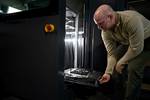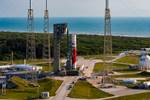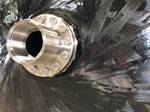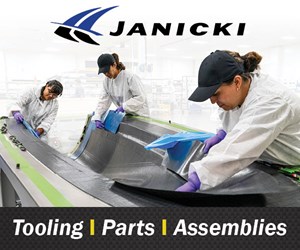Weber State students showcase composite rocket nozzle studies
Engineering students welcomed U.S. Space Command official Thomas A. Lockhart in June to demonstrate their role at WSU’s MARS in conducting real-world materials and additive manufacturing projects.
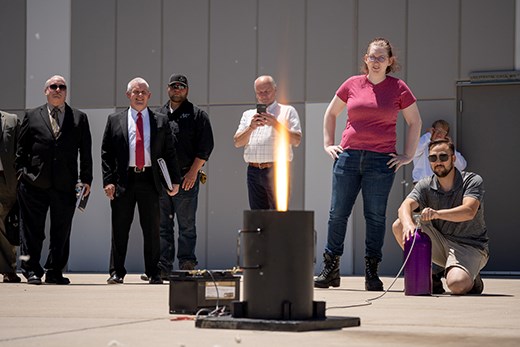
Photo Credit: Weber State University (WSU)
Back in June 2023, Weber State University (WSU, Ogden, Utah) engineering students demonstrated the progress of their senior capstone project to U.S. Space Command official Thomas A. Lockhart as he toured WSU’s Miller Advanced Research & Solutions Center (MARS). MARS was opened in August 2022 as a way to brings together students, faculty, university partners and the community to address the production deficiency in high-temperature materials deployment in the aerospace and defense industries.
Lockhart is a member of the senior executive service and the director of the Capability and Resource Integration Directorate at Peterson Space Force Base, in Colo., U.S. As part of his visit, Lockhart learned about the MARS Center’s ongoing materials and additive manufacturing projects with local aerospace partners, and proposed layout changes to the facility that will accommodate additional high-tech equipment.
To showcase the real-world studies conducted at MARS, WSU graduates joined mechanical engineering professors Dustin Birch and Spencer Peterson and current students to test the heat tolerance of a carbon fiber composite rocket nozzle under extremely high temperatures.
The team says they’re testing materials and technologies never before used for rocket nozzles. Ren Fisher, who works as a research engineer and served as project manager for the capstone project, says their research can ultimately help cut time, labor and cost for organizations working with rockets.
“Our testing platform makes it easy for us to try out different combinations, and collect data about how they perform, so future projects can trust that their rocket is the best it can be,” Fisher adds.
Like WSU, other universities around the world are contributing to new developments in the composites industry. Recent examples include the University of Sydney (Australia) where a novel recycling method is being developed for composites waste; University of British Columbia engineers successfully developed carbon fiber from bitumen; the University of Rhode Island installed an Orbital Composites AM system for advanced research in underwater unmanned vehicles; and the University of Southampton (U.K.) is advancing sensors.
Related Content
-
High-performance, high-detail continuous 3D-printed carbon fiber parts
Since 2014, Mantis Composites has built its customer and R&D capabilities specifically toward design, printing and postprocessing of highly engineered aerospace and defense parts.
-
Toray Composite Materials America to double Torayca T1100 production capacity
The upgrade to the company’s Decatur, Alabama, carbon fiber plant is set to begin April 2023 in order to support rising demand in defense applications.
-
Plant tour: National Institute for Aviation Research, Wichita, Kan., U.S.
NIAR, located at Wichita State University in the heart of the American aerospace manufacturing industry, has evolved to become a premier hub of teaching, R&D, creativity and innovation.


